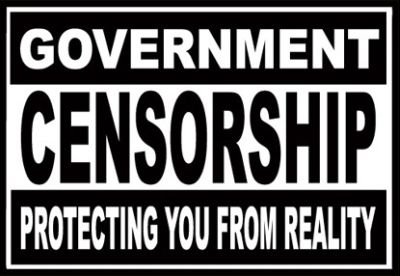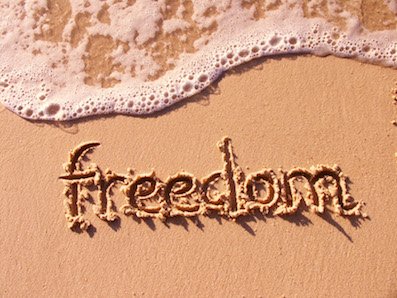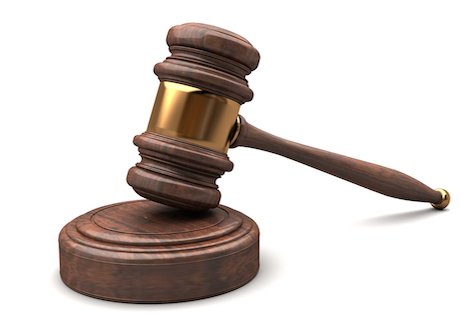Has Political Correctness Gone too Far?
Has Political Correctness Gone too Far?
A freshly released poll by Angus-Reid Institute seems to say yes. Published this morning, the poll indicates that 80% of Canadians think people are too easily offended. Furthermore, it points to a worrying trend of self-censorship: 78% of respondents think you should not voice certain opinions in front of people you do not know It is a complex and heavy task to untangle how we got to this point; I cannot, however, help but think that post-secondary education somehow infected the once-vibrant institution of free speech and turned it into the rotting corpse that it is today.
For instance, University of Ottawa professor Janice Fiamengo was drowned out during a special lecture in 2014, the disruptors going so far as (illegally) pulling a fire alarm to disrupt the evening. Her crime? Respectfully disagreeing with conventional feminist thought. All of this, happening in close vicinity to the nation's top court and legislative body, no less.
However, this depressing state is not limited to the nation's capital. Every year, Canada's Justice Centre for Constitutional Freedoms publishes their "Campus Freedom Index", a measure of free speech on Canadian campuses. In 2015, while awarding grades to 55 campuses, only 8 schools and student unions earned A grades – with 41 F's being handed out. Student unions and school administrators seem bent on making sure that nobody gets offended. This raises an important question: are universities supposed to be places where nobody ever gets challenged, or is university a place where ideas should be respectfully discussed, and truth sought out? Unfortunately, it seems that education has become so politicized that the former is the answer of choice.

Offensive, but True?
I doubt most people would think it is right to intentionally offend someone simply for the sake of hurting them. However, humans don't exactly have mind-reading capabilities. So, it can be very easy to be offended simply by assuming the other person had dark, malicious motives. What they said was not intended to be hurtful, yet it gets interpreted as such, because of suspicion, or an easily bruised ego.
This seems to be a problem particularly for millenial students. Some very interesting psychological research has been done on this generation's performance and adaptation to post-secondary education. Most researchers agree: permissive and over-protective parenting has steadily been on the rise in the last years. As a consequence, young people reach emotional maturity more slowly than they used to, require more counselling services in post-secondary education, and hold much more entitled views about their education, expecting minimal effort to produce maximal returns.
So, today's students seem to grow up with the expectation that their feelings should never be bruised by anyone. Consequently, it becomes extremely difficult to deal with hurt when it does happen, because their utopian expectations are so far removed from reality. My personal experience unfortunately corroborates this fact: the concept of defending your own thoughts, beliefs, and attitudes by yourself, in a rational and respectful fashion, is a revolutionary idea for most of my university peers. The first reflex is to run to a higher authority and have them deal with the controversy and make sure nobody else is ever victimized in the same way.
Short-Term Pain for Long-Term Gain
The first obvious problem with this approach is that we end up violating constitutional rights by censorship, whether harm and hatred were the underlying motives or not. However, there are many other problems with political correctness that may not catch the eye immediately.
The whole premise of political correctness is absolutely unrealistic: to avoid offending or marginalizing minorities. At first, this seems like a noble goal, but it has one major problem: it's very difficult to keep up with all new groups identifying themselves as marginalized. Keeping track of new minorities seems to be a full-time job nowadays. So, the first issue with political correctness is that you are always one step behind the people who self-identify as "minorities". It then becomes impossible to relate to other people in the way they desire, because it's not realisitc to be aware of everything going on around us.
Another false premise of political correctness is assuming that rules and regulations truly change human behaviour. Forcing a formula for expression onto the general public does not eliminate racism, sexism, and the like. It allows it to keep on existing, festering in a dark corner, going wholly unchallened because it is considered offensive to talk about it. In censoring all offensive speech, we are simply lulling ourselves into a false peace, deluding ourselves into thinking that hatred is not a problem because we've now stuffed it into the attic and tried to forget about it. So, I would even argue that political correctness is making certain problems worse, because hiding them from the public eye makes us believe they are not social issues anymore.

A Better Way
While I have a deep disdain for political correctness, I do believe we need to expose, and confront true hatred, rather than cowardly expecting it to go away by force-feeding formulaic phrases to the general public. In fact, the reason why I loathe political correctness is precisely because I love my country, and believe in a free society. Political correctness is not coming anywhere near to helping us reach these goals.
I believe the only way of exposing hatred is by contrasting it to true care, kindness, and concern for each other – not by spoon-feeding each other "correct" vocabulary. If we do wish to make our countries a safer place for others, we need to remind ourselves of other people's inherent worth, make a smaller deal of our own feelings, and feel a responsibility of rationally and consistently exposing hateful, spiteful people for who they are.
In a sense, fighting against hatred requires taking the moral high ground, and accepting to fight nobly against opponents who would play dirty. Only then do I think we can truly have a more caring society, free from unnecessary governmental intervention, and rock-hard rules that do nothing to change people's true motives and behaviour. But in the meantime, we'll just have to deal with the false fire alarms.
The results of the Angus-Reid poll can be found here: http://angusreid.org/political-correctness/
About the author:
I am currently studying veterinary medicine, after obtaining a degree in agricultural and environmental science at McGill university. After spending 5 years in academia, I am becoming increasingly alarmed at the state of censorship on Canadian campuses. I hope that this article will bring together people of like views, so we can hopefully make universities and colleges freer places for the future generations.

My theory: I think its daycare. Our generation went through a lot of it at a very young age. I've read a study that showed that kids who spend more than 12h a week at daycare experience the same symptoms has kids who are orphans. Imagine a 18 months old baby getting in a daycare having to compete with a bunch of other toddlers who compete for stranger attention. Here we are 20 years later with kids who can only throw a tantrum in order to get people's attention and who are emotional wreck themselves.
Interesting. That is a good point I had never considered!
Steem On
It was very nice to read, and so true! I am however not sure universities are going into the right direction, also in Europe :(
Yes, I would agree that it is a generalized problem in the West. Unfortunately not many places are free from this corruption of academia anymore.